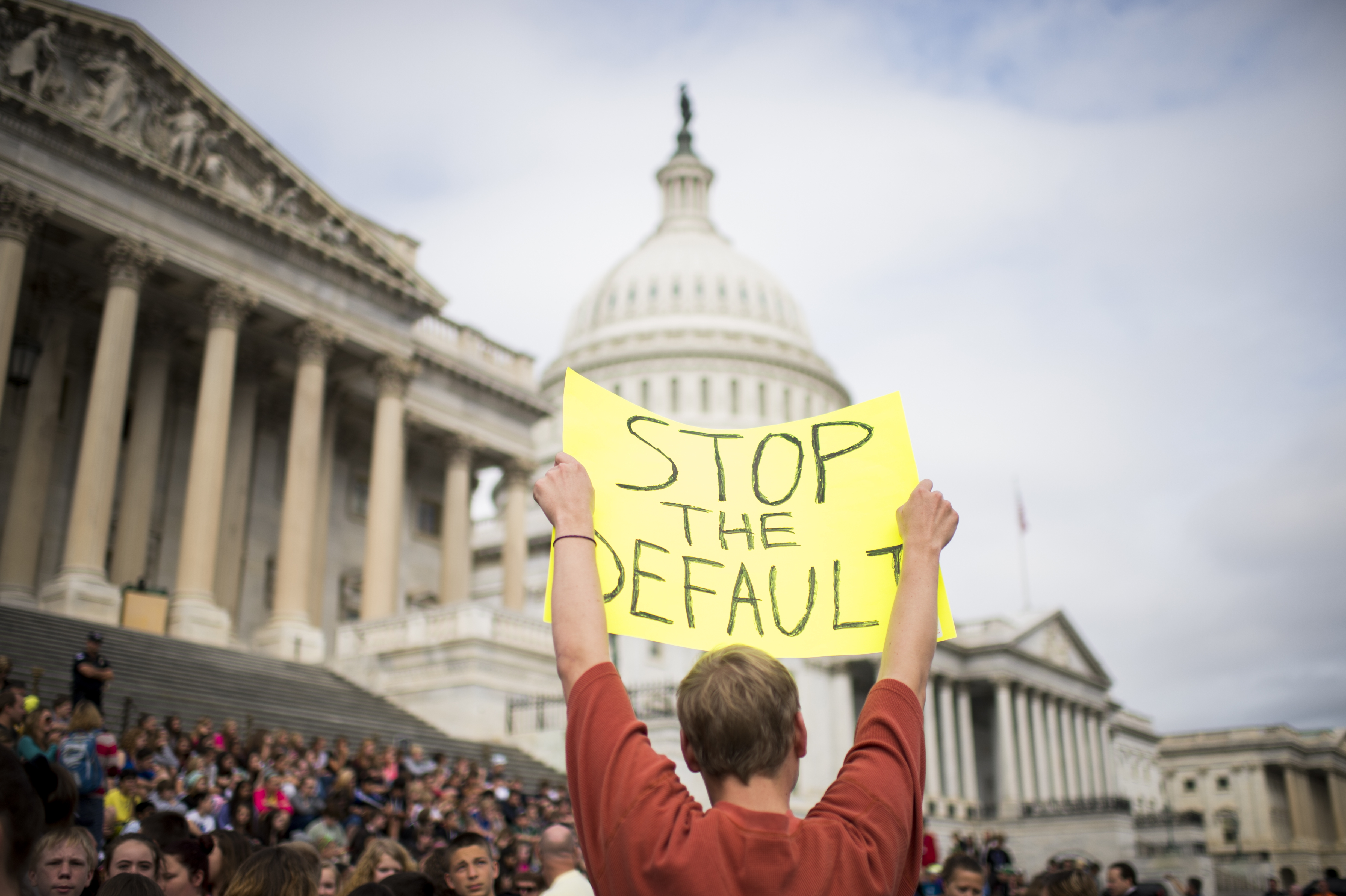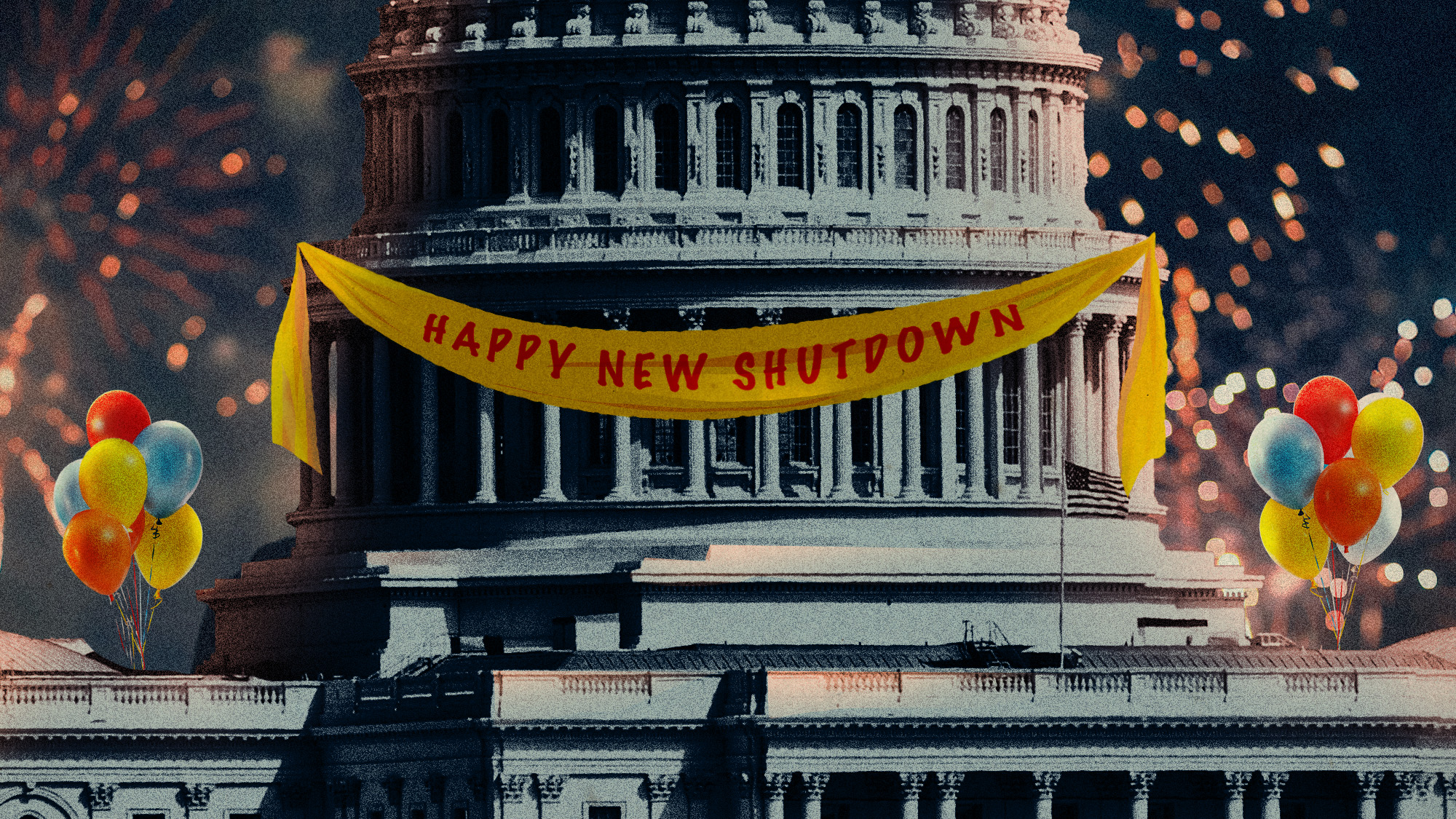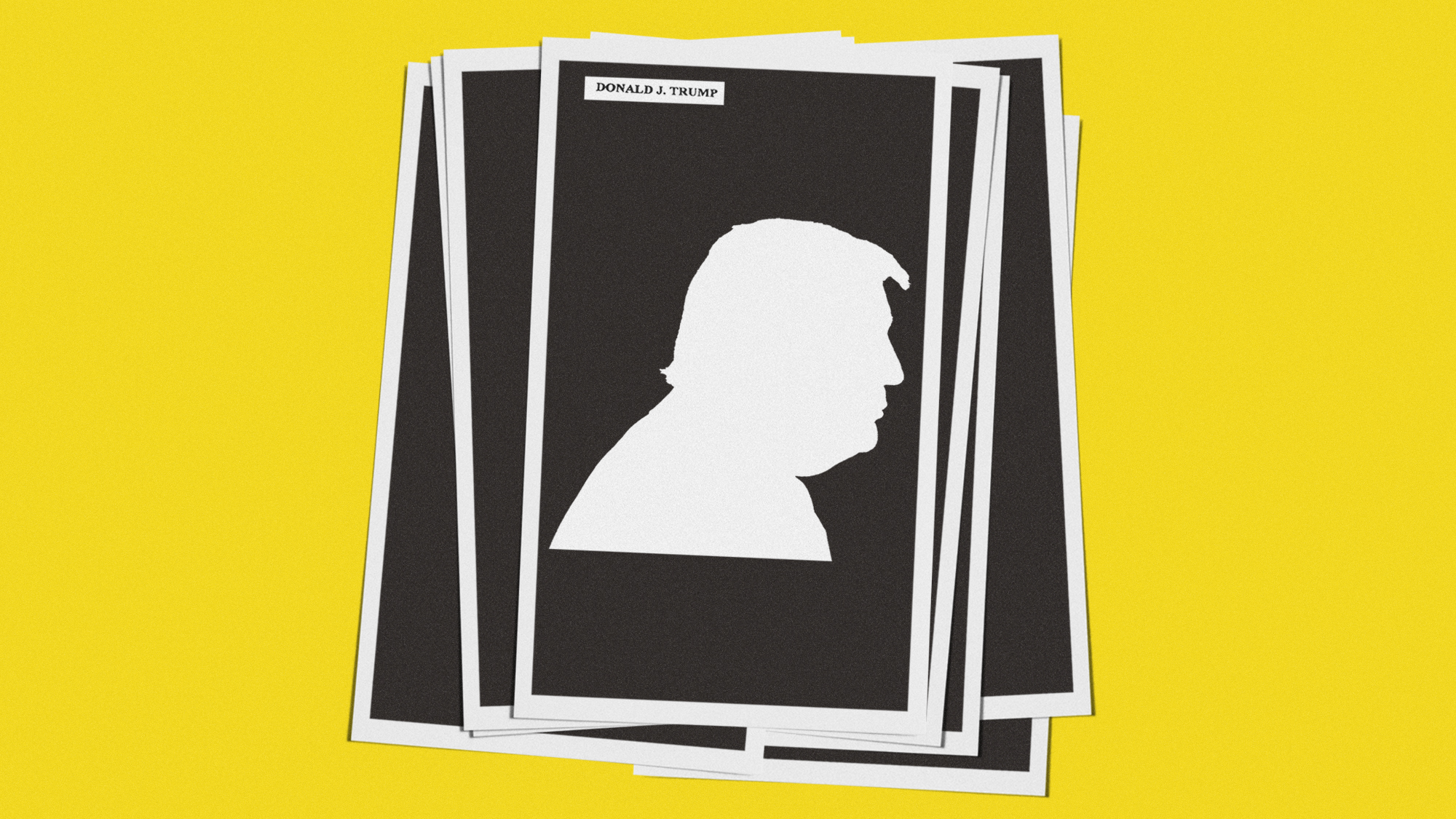The numbers you need to know to understand the debt ceiling fight
With a potential breach looming, these are the figures that will define whether America will pay back the money it owes


A free daily email with the biggest news stories of the day – and the best features from TheWeek.com
You are now subscribed
Your newsletter sign-up was successful
Many a childhood math teacher has asserted with total confidence that their young students would need to understand some complex theory of algebra or geometry as an adult. Even so, there is a significant chance you have since grown up and largely forgotten those same math skills that were allegedly going to be so very crucial.
If that scenario sounds familiar, take heart in knowing that your math teacher wasn't entirely mistaken; there are still scenarios in which your childhood grasp of numbers can indeed help make sense of our complicated world.
Take, for instance, the looming debt ceiling crisis, as the United States rapidly approaches a point where it will be statutorily unable to pay back its existing loans. Although the mechanics of the federal budget are complex, the intensifying negotiations between President Biden's administration and the GOP-controlled House fundamentally boil down to a question of numbers. Here are the key figures to keep in mind as lawmakers haggle over the possibility that America could default on its loans for the first time in history.
The Week
Escape your echo chamber. Get the facts behind the news, plus analysis from multiple perspectives.

Sign up for The Week's Free Newsletters
From our morning news briefing to a weekly Good News Newsletter, get the best of The Week delivered directly to your inbox.
From our morning news briefing to a weekly Good News Newsletter, get the best of The Week delivered directly to your inbox.
31.4 trillion
Currently, the United States' standing debt limit is $31.4 trillion dollars, an amount set by Congress in 2021 when it raised the previous limit by $2.5 trillion. Crucially, this figure represents the amount of money the U.S. government can borrow to pay back preexisting loans — not take out new ones. The country actually hit the debt ceiling in mid-January, but has so far been able to continue paying its loans thanks in part to what's known as "extraordinary measures" enacted by the Treasury Department to help put off an actual default. Once those measures are exhausted, however, the country will be forced to default on its current loans, triggering an economic catastrophe.
6/1
Of all the questions surrounding the debt limit, perhaps the most pressing is pinning down the "x-date" of when, exactly, the country would enter default — it's a tricky time frame to figure out "as federal receipts and outlays are inherently variable," but could potentially come "as early as June 1, if Congress does not raise or suspend the debt limit before that time," according to Treasury Sec. Janet Yellen.
78
That's how many times Congress has voted to raise the debt ceiling since 1960, nearly twice as often under Republican administrations (49) as under Democratic ones (29). Until relatively recently, the process of raising the debt limit was fairly straightforward, bearing little resemblance to the high-stakes political brinksmanship that's come to define debt limit fights since...
2011
This is the last time a major debt ceiling fight came close to derailing the entire U.S. economy. Then, as now, congressional Republicans and a Democratic White House were unable to reach a legislative agreement in the months leading up to the debt limit breach, before finally passing the Budget Control Act of 2011 with just 72 hours to spare. To give a sense of just how dangerous even risking a breach can be, Standard and Poor's — one of the credit services that oversees national credit ratings — didn't wait for the limit to be passed before downgrading the country's AAA ranking to AA+ the month before an agreement was finally struck. That downgrade in turn led to what was at the time the biggest stock market drop since the Great Recession of 2008. And again, all this happened before the limit was breached.
A free daily email with the biggest news stories of the day – and the best features from TheWeek.com
14 - 4
In early May, President Biden (who has repeatedly demanded a "clean" debt limit raise) confirmed to reporters that he'd begun "considering the 14th Amendment" if House Republicans continued to demand widespread spending cuts as their baseline negotiation position for raising the debt ceiling. Biden was specifically referring to invoking the 14th Amendment's fourth clause, which states: "The validity of the public debt of the United States, authorized by law, including debts incurred for payment of pensions and bounties for services in suppressing insurrection or rebellion, shall not be questioned."
The legal theory that the 14th Amendment can authorize the president to keep spending to pay back debts, even if Congress hasn't authorized a raise in the limit has been around for years, slowly moving into the mainstream conversation, with constitutional scholar and longtime presidential adviser Laurence Tribe offering a mea culpa of sorts in a recent New York Times essay explaining how he'd come around to the idea after rejecting it in 2011. In short, proponents of the theory argue that by establishing a debt limit in the first place, but then repeatedly authorizing congressional spending that exceeds it, Congress has placed itself in an impossible, unconstitutional position. Accordingly, the president may invoke the amendment to ensure that the nation's lawfully legislated debts are "not questioned," even if doing so "raises thorny questions about the appropriate way to interpret the text," as Tribe wrote.
House speaker and chief GOP negotiator Rep. Kevin McCarthy (R-Calif.) immediately denounced the idea after Biden raised it, calling it a "failure of working with people across sides of the aisle," should it be invoked. Biden, meanwhile, seemed similarly skeptical of the theory, noting that since it's never actually been applied in practice "it would have to be litigated. And in the meantime, without an extension, it would still end up in the same place."
1 trillion
One of the more straightforward, if controversial, solutions to the nation's impending debt limit crisis is to simply mint a $1 trillion coin, and then use it to help pay down the country's debt. It's a theory that's been around for years and, like invoking the 14th Amendment, has its various supporters and detractors who argue over potential unintended consequences, as well as its outright feasibility. To date, the White House has given little indication that it has seriously considered the option.
222
As evidenced by his historic difficulties attaining the speaker's gavel, McCarthy's barely-there GOP majority has proven to be exceedingly tricky to whip into a cohesive voting block — a circumstance that puts the speaker increasingly subject to the whims of his party's more extreme members whose support he needs to pass anything through the chamber. With just 222 seats, McCarthy can only afford to lose a handful of defectors or any GOP-led measure is likely sunk in the House. Conversely, with Democrats still holding the Senate and White House, McCarthy's push for massive spending cuts as outlined in his barely-passed Limit Save Grow Bill are virtually non-starters even if he's able to wrangle his own caucus. Democratic lawmakers have taken their negotiation cues directly from Biden's administration, and been in virtual lockstep with the White House that McCarthy should present a clean debt limit hike before any spending and budget negotiations take place.
Underlying all of this is the fact that the United States has never entered into default in the more than 100 years since the debt limit was introduced. To do so this summer would move the country into wholly unprecedented and uncharted territory, prompting Biden and Senate Minority Leader Mitch McConnell (R-Ky.) into rare agreement when they each asserted after a recent round of negotiations that the U.S. "will not default" on its debt.
Rafi Schwartz has worked as a politics writer at The Week since 2022, where he covers elections, Congress and the White House. He was previously a contributing writer with Mic focusing largely on politics, a senior writer with Splinter News, a staff writer for Fusion's news lab, and the managing editor of Heeb Magazine, a Jewish life and culture publication. Rafi's work has appeared in Rolling Stone, GOOD and The Forward, among others.
-
 The ‘ravenous’ demand for Cornish minerals
The ‘ravenous’ demand for Cornish mineralsUnder the Radar Growing need for critical minerals to power tech has intensified ‘appetite’ for lithium, which could be a ‘huge boon’ for local economy
-
 Why are election experts taking Trump’s midterm threats seriously?
Why are election experts taking Trump’s midterm threats seriously?IN THE SPOTLIGHT As the president muses about polling place deployments and a centralized electoral system aimed at one-party control, lawmakers are taking this administration at its word
-
 ‘Restaurateurs have become millionaires’
‘Restaurateurs have become millionaires’Instant Opinion Opinion, comment and editorials of the day
-
 Grand jury rejects charging 6 Democrats for ‘orders’ video
Grand jury rejects charging 6 Democrats for ‘orders’ videoSpeed Read The jury refused to indict Democratic lawmakers for a video in which they urged military members to resist illegal orders
-
 Democrats push for ICE accountability
Democrats push for ICE accountabilityFeature U.S. citizens shot and violently detained by immigration agents testify at Capitol Hill hearing
-
 Will Peter Mandelson and Andrew testify to US Congress?
Will Peter Mandelson and Andrew testify to US Congress?Today's Big Question Could political pressure overcome legal obstacles and force either man to give evidence over their relationship with Jeffrey Epstein?
-
 The ‘mad king’: has Trump finally lost it?
The ‘mad king’: has Trump finally lost it?Talking Point Rambling speeches, wind turbine obsession, and an ‘unhinged’ letter to Norway’s prime minister have caused concern whether the rest of his term is ‘sustainable’
-
 Rep. Ilhan Omar attacked with unknown liquid
Rep. Ilhan Omar attacked with unknown liquidSpeed Read This ‘small agitator isn’t going to intimidate me from doing my work’
-
 Can anyone stop Donald Trump?
Can anyone stop Donald Trump?Today's Big Question US president ‘no longer cares what anybody thinks’ so how to counter his global strongman stance?
-
 Will the new year bring a new shutdown?
Will the new year bring a new shutdown?Today’s Big Question A January deadline could bring the pain all over again
-
 Is Trump deliberately redacting Epstein files to shield himself?
Is Trump deliberately redacting Epstein files to shield himself?Today’s Big Question Removal of image from publicly released documents prompts accusations of political interference by justice department
